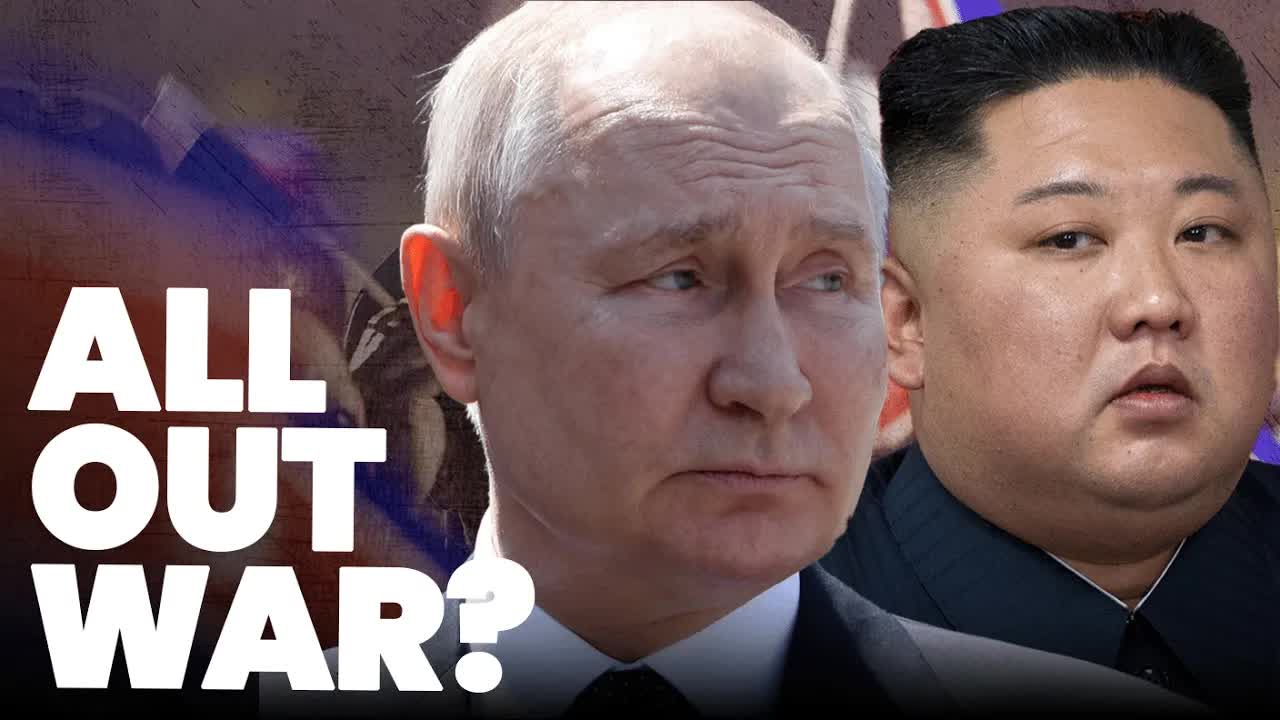The landscape of the Ukraine conflict is shifting dramatically, and NATO may need to rethink its entire strategy.
What once seemed like a regional skirmish has escalated into a global confrontation, with new players entering the stage.
Recent intelligence from South Korea suggests that around 1,500 North Korean soldiers have arrived in Russia’s Far East, signaling a potential deployment to the Ukrainian front lines.
This development raises critical questions about the implications for both the conflict and international relations.
Experts believe there is substantial evidence supporting these claims.
South Korean intelligence agencies, known for their reliability, along with Ukrainian counterparts, are convinced that North Korean troops will soon be involved in combat.
Footage has surfaced showing North Korean soldiers either en route to or already present in Russia.
Moreover, it’s worth noting that North Korean personnel have been active in the Donbass region for some time, assisting with reconstruction efforts and supplying munitions.
However, the integration of North Korean troops into the Russian military raises concerns about communication barriers.
It’s highly unlikely that many Russian soldiers, especially at lower ranks, speak North Korean.
In fact, most don’t even communicate effectively in Ukrainian, which complicates matters further.
The absence of a common language could hinder coordination during battles, posing risks for both forces.
The challenges of multilingual operations have plagued Ukraine throughout this war, and it appears that North Korea and Russia will face similar hurdles.
The nature of the North Korean troops being sent is also noteworthy.
Among them is reportedly Ri Sung-jin, a missile technician with expertise in the KN-23 missiles supplied to Russia for use against Ukraine.
This raises questions about the technical support North Korea is providing to Russia.
It’s likely that they are not just sending soldiers but also specialists who can offer insights into modern warfare tactics, including electronic warfare and drone operations.
South Korea expresses concern that Russia may reciprocate by sharing vital military technology with North Korea, possibly even information on high-value weaponry.
The dynamics of this relationship suggest that there may have been negotiations between the two countries, facilitating North Korea’s troop deployment.
While the exact nature of these agreements remains speculative, the implications could be significant.
In return for their assistance, North Korea is expected to receive hard currency, a commodity they desperately need.
This payment may come from the wages of North Koreans already working in Russia, particularly in occupied Ukrainian territories.
Additionally, North Korean soldiers will gain firsthand experience in modern warfare, which could enhance their military capabilities.
While technology transfer is a possibility, experts believe Russia would be cautious about sharing nuclear-related advancements with North Korea.
Despite their seemingly amicable relationship, Vladimir Putin likely harbors reservations about empowering Kim Jong-un with enhanced nuclear capabilities.
The moral and international obligations surrounding nuclear proliferation make such a transfer unlikely.
As the presence of North Korean troops in Ukraine becomes more evident, the West’s response will be crucial.
Ukrainian President Volodymyr Zelensky may have had prior knowledge of this development, but the growing evidence could prompt a stronger reaction from NATO.
Mark Rutte, NATO’s new Secretary General, has already labeled this situation as a significant escalation.
This escalation poses a serious challenge for NATO, which has historically avoided direct military engagement in Ukraine to prevent broader conflict.
However, with North Korea actively participating in ground operations, NATO may need to reassess its approach.
The alliance’s commitment to supporting Ukraine without crossing certain thresholds will be tested as the conflict evolves.
Ultimately, NATO faces a pivotal moment.
To avoid further escalation and the involvement of other co-belligerents, decisive action will be necessary.
The time for slogans like “for as long as it takes” may be over; a concrete strategy aimed at diminishing Russia’s influence in Ukraine is essential.
Whether NATO can unite under such a strategy remains uncertain, but the stakes have never been higher.































